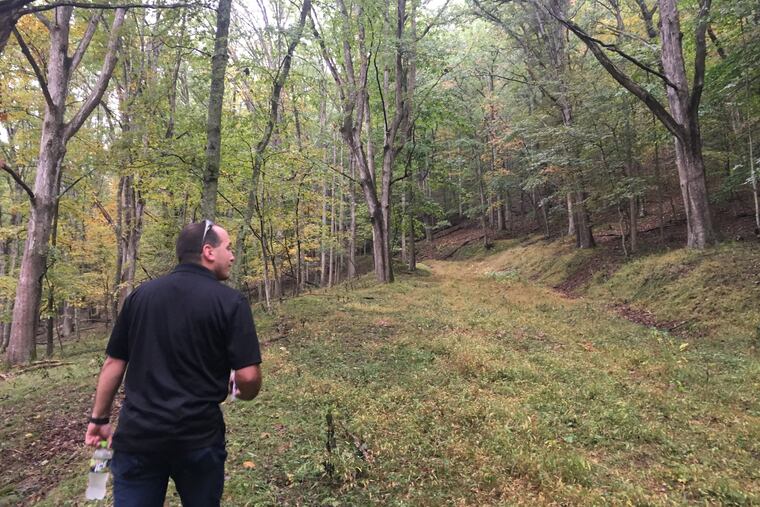The legend of Pennsylvania’s lost gold lives on as treasure-hunting group pushes FBI for documents
An attorney for two Western Pennsylvania treasure hunters is asking the Department of Justice to released nearly 2,400 pages of evidence connected to the case.

The legend of Pennsylvania’s lost shipment of Civil War-era gold found its way to Zoom Wednesday, as a treasure-hunting team claimed again that the FBI found the lucrative cache, kept it, and is lying to the public.
Father-and-son treasure hunters Dennis and Kem Parada, their attorney, William Cluck, and Warren Getler, a journalist who has worked with them and written about Civil War-era legends of lost gold, held a virtual press conference, calling on the feds to unseal the case.
The FBI sent a team to Dents Run, Elk County, a rural area 260 miles northwest of Philadelphia, for several days in March 2018 and have repeatedly said nothing was found during the dig. Dennis Parada, citing decades of his own research with his firm Finders Keepers, along with data and ground readings from the site, said the FBI’s claim “does just not hold up anymore.”
“The question now is how much they found and where did it go to,” Parada said.
The FBI said, again, that “nothing was found in the excavation.”
“The FBI unequivocally rejects any claims or speculation to the contrary,” spokesperson Carrie Adamowski said in a statement Tuesday.
The U.S. Attorney’s Office in Philadelphia said the case is considered closed.
Cluck, on Wednesday, sent a letter to the U.S. Department of Justice, asking the office to expedite his Freedom of Information Act request for nearly 2,400 documents in the case file. It’s been unclear why the case remains sealed, but documents Cluck has already obtained, including emails, make it clear that investigators went to Elk County in search of gold and believed it may have been there. The FBI always maintained it was excavating a “cultural heritage site.”
According to Getler, a Lancaster-based geological firm the FBI hired to conduct metal detection found seven to nine tons of gold and silver at Dents Run, but the company has repeatedly declined to comment. The FBI also will not comment about the company’s work.
“Significant tax dollars were spent on this venture,” Cluck wrote. “The public has a right to know how those tax dollars were spent.”
The legend dates to the summer of 1863, when a special Union detachment was tasked with transporting 26 gold bars, each weighing 50 pounds, from West Virginia to the U.S. Mint in Philadelphia. That detachment, as the story goes, was ambushed, the gold lost and supposedly buried.
Getler said he and the Paradas came to Philadelphia in January 2018 to meet with agents from the FBI’s Art Crime Team.
“I just want to remind you that the FBI worked hand-in-hand with us on this,” Getler said.
Getler said the FBI’s demeanor changed dramatically during the dig, from friendly to adversarial. He said he and the Paradas were led away from the site to look at an empty hole and then kept far away at the base of a hill. Getler, author of Rebel Gold, a book about Civil War-era gold, believes the Dents Run cache was held in SUVs and transferred to armored cars under cover of darkness.
“If you want to listen to the FBI and believe nothing was found, that’s your choice,“ Getler said. “Why would they bring in four armored cars? Why would they bring in such extensive resources?”
When asked why the FBI would lie about finding gold, Getler said he believes there’s more gold buried across the country and the agency doesn’t want treasure hunters to find it. Cluck believes one reason could be the potential legal arguments over claims to the gold ― which could be worth hundreds of millions of dollars ― between the federal government, the commonwealth, and the Paradas.
“I am extremely suspicious of the secrecy,” Cluck said.
Getler said he would like Congress to investigate.